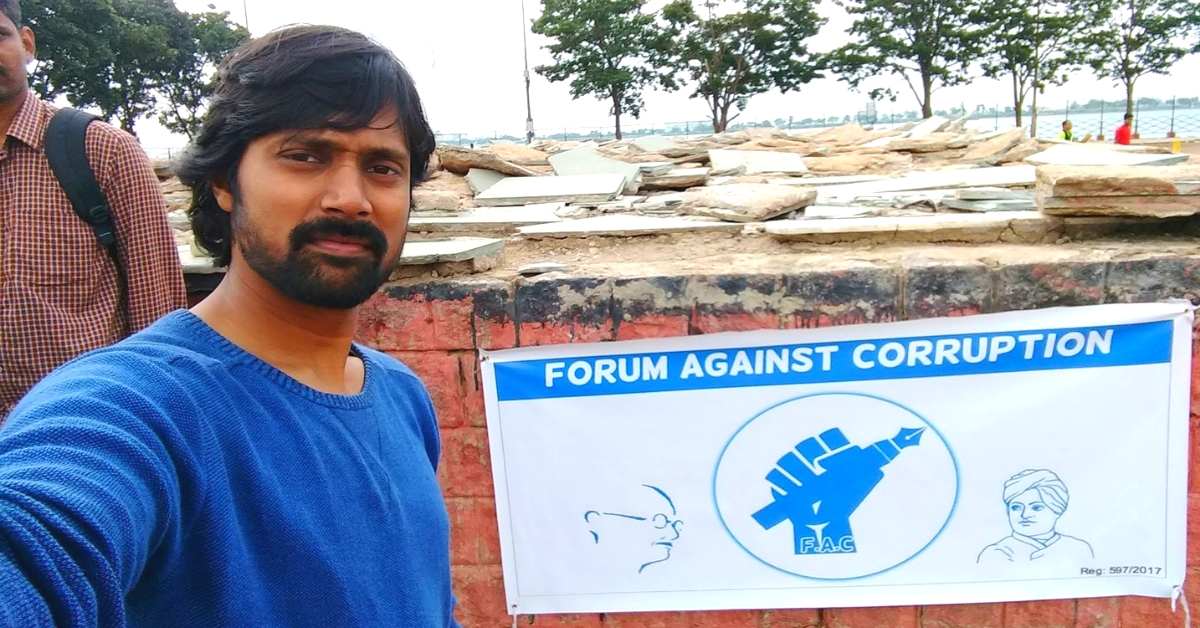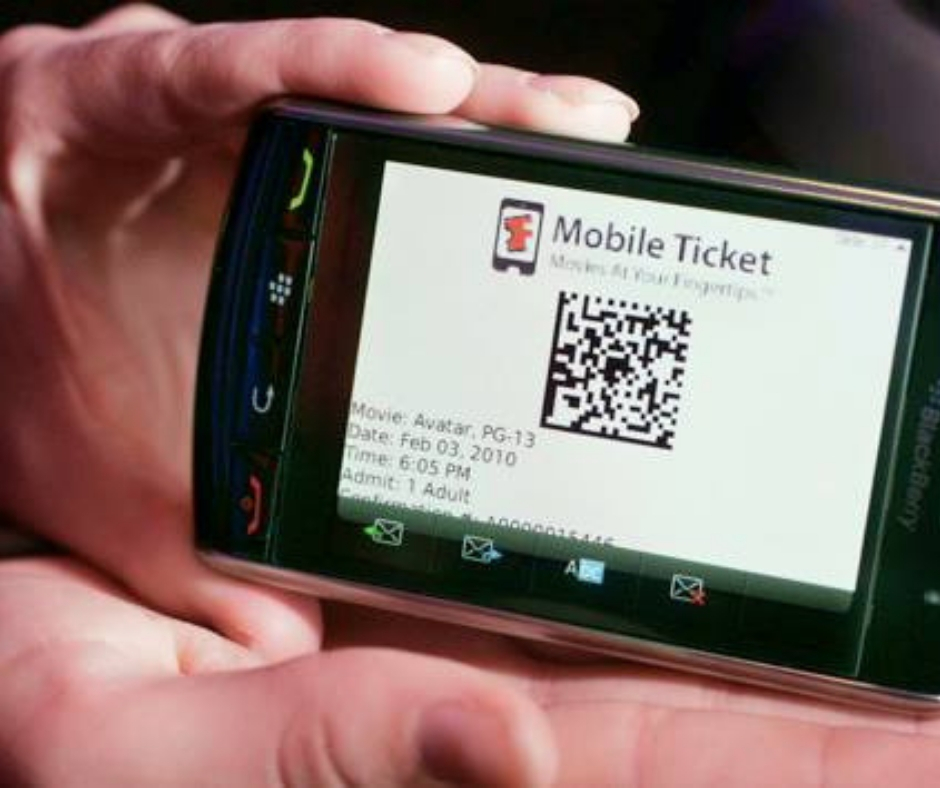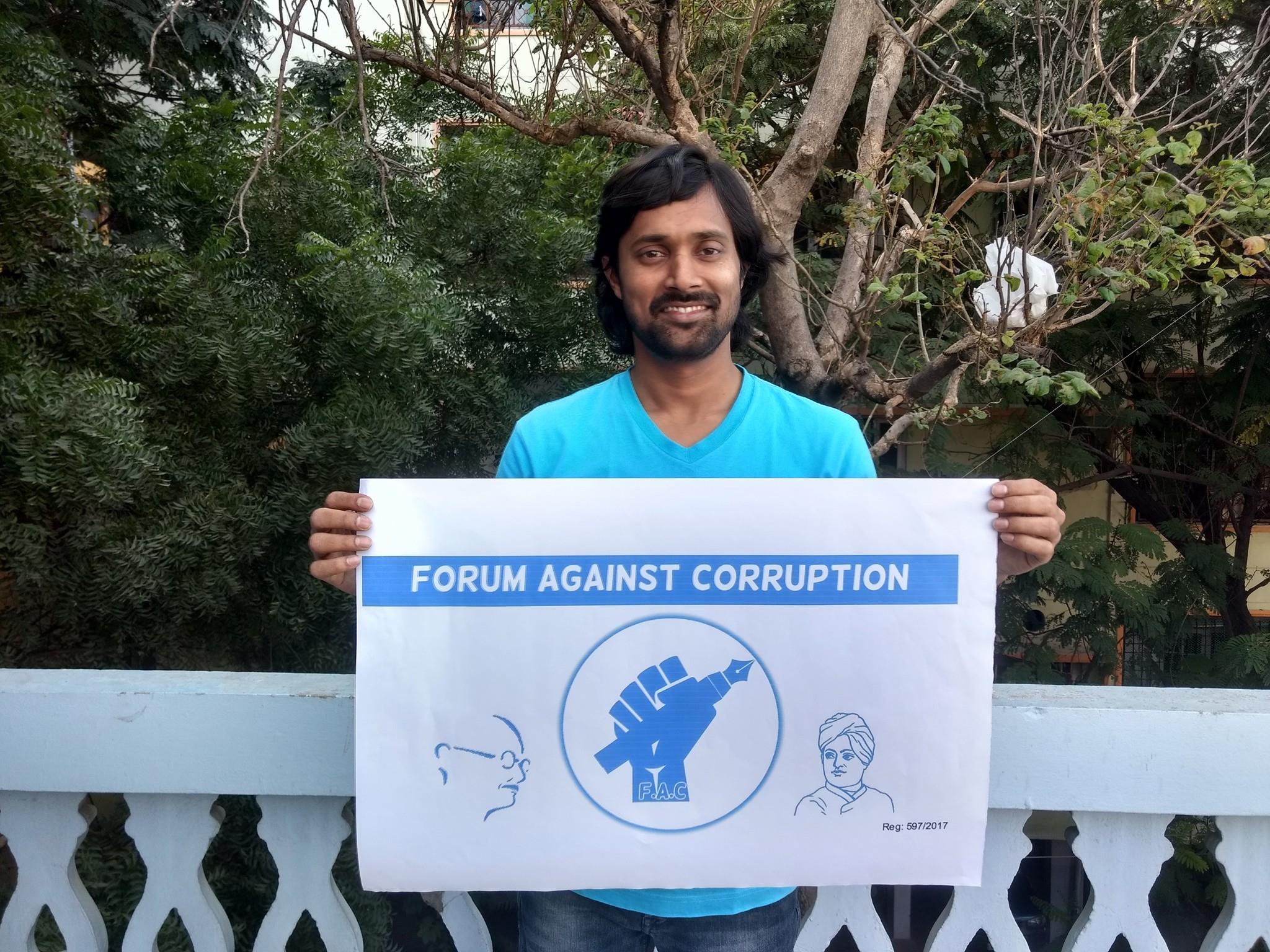Meet the Hyderabad Man Taking on E-Com Portals For Charging ‘Internet Handling Fees’
"By the time I bought the tickets, my transaction had increased by 30% of the amount I had initially seen for the movie ticket price. Unfortunately, this practice isn’t merely limited to Paytm or INOX, even cab services and food delivery apps levy this charge,” says Vijay Gopal. #ConsumerRights #RBI

While many working professionals in India are still working out the elusive ‘work-life balance,’ Vijay Gopal, a native of Hyderabad and a full-time employee of an MNC, is making headlines as an anti-corruption activist.
He came into the spotlight earlier this year, when he took on BookMyShow, a leading online ticket vendor, and PVR, the multiplex chain, for charging an extra ‘internet handling fee’ which is added to each movie ticket purchased on their app or website.

Responding to an RTI he filed, the Reserve Bank of India said that these platforms do not have the authority to levy the fee. They further added that it is a gross violation of the central bank’s Merchant Discount Rate (MDR) regulations.
Also Read: Booked a Movie Ticket Online & Paid ‘Internet Handling Fees’? RBI Says You Shouldn’t!
Before booking a case against PVR and BookMyShow in consumer court, Vijay admits that he didn’t read the Information Technology Act properly. He was only aware of the consumer-related laws, how things work, and concerns under the purview of unfair trade practices.
Taking on biggies
“When I read the Act, I was stunned to know that there are specific restrictions on service providers to not levy any service charge unless they have explicit authorisation. What it means for consumers is that when we see a product and price tag while surfing through our options, the price cannot change drastically for different elements added to the bill by the time they pay money for it,” he says.
When a multiplex opts to take its business online, it does so because that’s the platform where most of their target customers are present. If this multiplex sold tickets only offline, their expenditure would increase.
So, they are getting rid of all this additional expenditure by going online for their own benefit. They are doing the customer a favour by coming online, and therefore, cannot charge them extra.
In different states, the price of a movie ticket, for example, is decided by that particular government. Revenue is shared between the government and the multiplexes. Now, what these multiplexes are starting to do is find ways to seemingly extract more from the consumer.
Take the case he filed against Paytm and INOX.
“I had bought two movie tickets costing Rs 138 each, which amounts to Rs 276. However, by the time I paid up the total transaction cost was Rs 356.12—an extra Rs 80.12. Breaking the extra Rs 80.12 charged by Paytm and INOX down, what I found were cancellation protection charges of Rs 33.9, a convenience fee of Rs 12 and booking a charge of Rs 22. By the time I bought the tickets, my transaction had increased by 30% of the amount I had initially seen for the movie ticket price. Unfortunately, this practice isn’t merely limited to Paytm or INOX, cab services and food delivery apps also levy this charge,” says Vijay.
Under Section 6A(3) in The Information Technology Act, 2000, “the appropriate Government may authorise the service providers to collect, retain and appropriate service charges under this section notwithstanding the fact that there is no express provision under the Act, rule, regulation or notification under which the service is provided to collect, retain and appropriate e-service charges by the service providers.”
In other words, service providers cannot collect, retain and appropriate service charges unless they receive explicit authorisation from the said government authority.
“Paytm is a pan-India application, and not regional. Hence, the app’s management is required to have authorisation from the IT Department of the Government of India and not the State government. Unsurprisingly, as an RIT application found out, they don’t have any such authorisation. Since it’s a payment gateway charges related issue, we also filed an RTI application with RBI,” says Vijay.
The central bank also responded by saying they had not authorised any online service provider to levy such charges and shift that burden of cost to the consumers. Payment gateway charges are less than 0.04% if the transaction is less than Rs 2000. It’s supposed to be paid by the merchant and not the consumer. Yet another RTI clarified that even the Ministry of Electronics and Information Technology (MEIT) did not give permission to any service provider to levy service charge in the form of fees.
“Paytm has ignored my complaint. I haven’t received any response from them. I wrote to INOX, and they initially chose to ignore me, but after filing a complaint at the police station, the MEIT forwarded it to the INOX management. The management responded that they would get back to me shortly after consulting their lawyers. The GoI is required to close that petition within 30 days from the day it is raised. So, let’s see what happens,” informs Vijay.
Vijay has filed a case against Paytm and INOX management under Section 45, 84 and 85 of IT Act, besides Section 418 and 420 of Indian Penal Code.

Consumer ignorance
He believes that these business entities get away with such unfair trade practices because of the Indian consumer’s ignorance. For example, one might remember that earlier, kirana store owners would charge 2% extra if you wanted to pay with your debit card.
“This practice has always been illegal. We just thought since I’m using a debit card, and it’s convenient for me, it’s okay to pay 2% extra. It’s far more convenient for a merchant to not have liquid cash with him and rather have digital money so that he doesn’t have to maintain any lockers or avoid any risks and so on,” informs Vijay.
Making matter worse is the inactivity of authorities like the IT Department of the GoI.
“They are simply ignoring the issues despite multiple complaints made. We haven’t heard from any official. They haven’t really taken a stand on the issue themselves,” he adds.
It’s imperative that they act because issues like these affect millions every day.
‘Silence is not an option, and neither is sulking’
After spending 12 hours at his day job, it isn’t easy for this enterprising person to make time for other battles.
However, in the words of Vijay, ‘you’ve got to do, what you got to do.’

“One has to make time, and it’s our responsibility to help fellow citizens. Silence is not an option, and neither is sulking. Besides this, I am also working on other cases like how much a private college can charge for school, intermediate, graduation and engineering fees in Telangana. What we are seeing here is serious exploitation of aspiring students and their families, and it’s imperative to challenge the excess and illegal fees imposed by these institutions,” recalls Vijay.
“Irrespective of the pressures and risks, we will take all the logical and requisite legal steps to address these consumer-related issues. We do not believe in street protests. This is the last option for us, and not first and we will only turn to them if we have exhausted all the legal remedies available to us,” he adds.
Meanwhile, Vijay has some advice for other fellow activists on the scene.
“Don’t give in to any temptations or obstacles that come your way. Legally, being right is what’s important as an activist. Living in the digital age, activism has become a lot easier with access to a lot of resources online, and one must take advantage of it. Yes, there are always risks in taking on institutions and businesses, but there is light at the end of the tunnel,” concludes Vijay.
(Edited by Gayatri Mishra)
Like this story? Or have something to share? Write to us: [email protected], or connect with us on Facebook and Twitter.
If you found our stories insightful, informative, or even just enjoyable, we invite you to consider making a voluntary payment to support the work we do at The Better India. Your contribution helps us continue producing quality content that educates, inspires, and drives positive change.
Choose one of the payment options below for your contribution-
By paying for the stories you value, you directly contribute to sustaining our efforts focused on making a difference in the world. Together, let’s ensure that impactful stories continue to be told and shared, enriching lives and communities alike.
Thank you for your support. Here are some frequently asked questions you might find helpful to know why you are contributing?


This story made me
-
97
-
121
-
89
-
167











